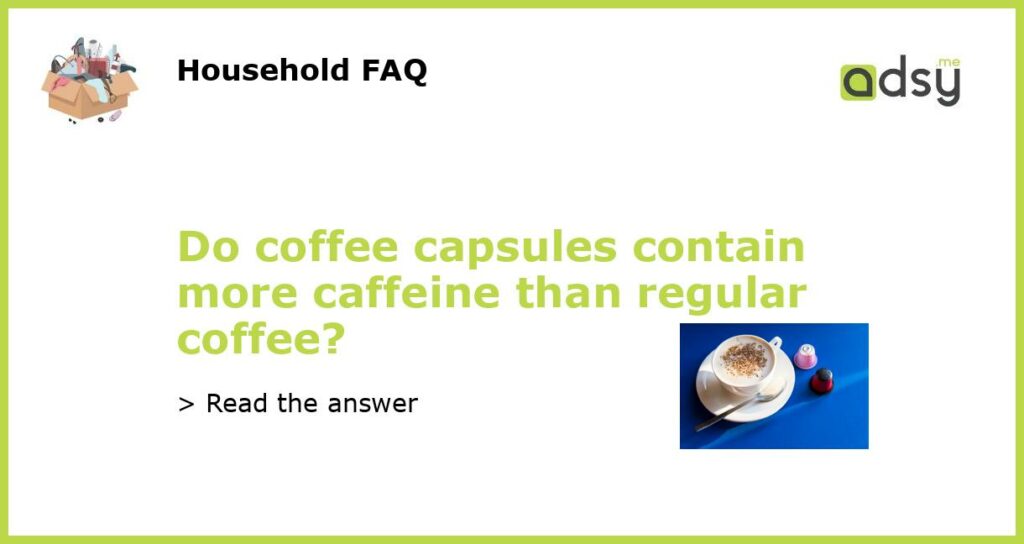What’s in a Coffee Capsule?
Coffee capsules are a popular choice for coffee lovers who value convenience and on-the-go brewing. But do these tiny capsules pack a stronger punch than regular coffee? It’s a question that has sparked debate among caffeine enthusiasts.
Caffeine Content: The Basics
The amount of caffeine in a cup of coffee can vary greatly, depending on a number of factors. Generally speaking, a standard 8-ounce cup of brewed coffee contains anywhere from 70-140 milligrams of caffeine. The type of coffee bean used, the brewing method, and the roast level all play a role in the final caffeine content.
Are Coffee Capsules More Caffeinated?
So, what about coffee capsules? While it’s true that some coffee capsules contain more caffeine than a traditional cup of coffee, this isn’t always the case. In fact, some capsules may contain less caffeine than a standard cup, depending on the brand and flavor. It’s important to read the label and check the caffeine content before assuming that a capsule is more potent than a regular cup of joe.
The Pros and Cons of Coffee Capsules
Aside from caffeine content, there are other considerations to keep in mind when it comes to coffee capsules. One benefit is their convenience and ease of use, especially for those who don’t have access to a coffee shop or don’t have time to brew a full pot at home. However, some critics argue that the individual packaging and disposal of capsules can create unnecessary waste and harm the environment.
The Verdict
Like most things in the coffee world, the answer to whether or not coffee capsules contain more caffeine than regular coffee is not black and white. It ultimately depends on the specific brand and flavor of capsule you’re consuming. While some may contain more caffeine than a traditional cup, others may not. As always, it’s important to read the label and understand the ingredients in the products you consume.






